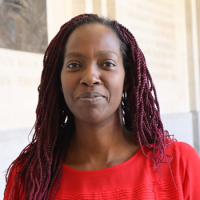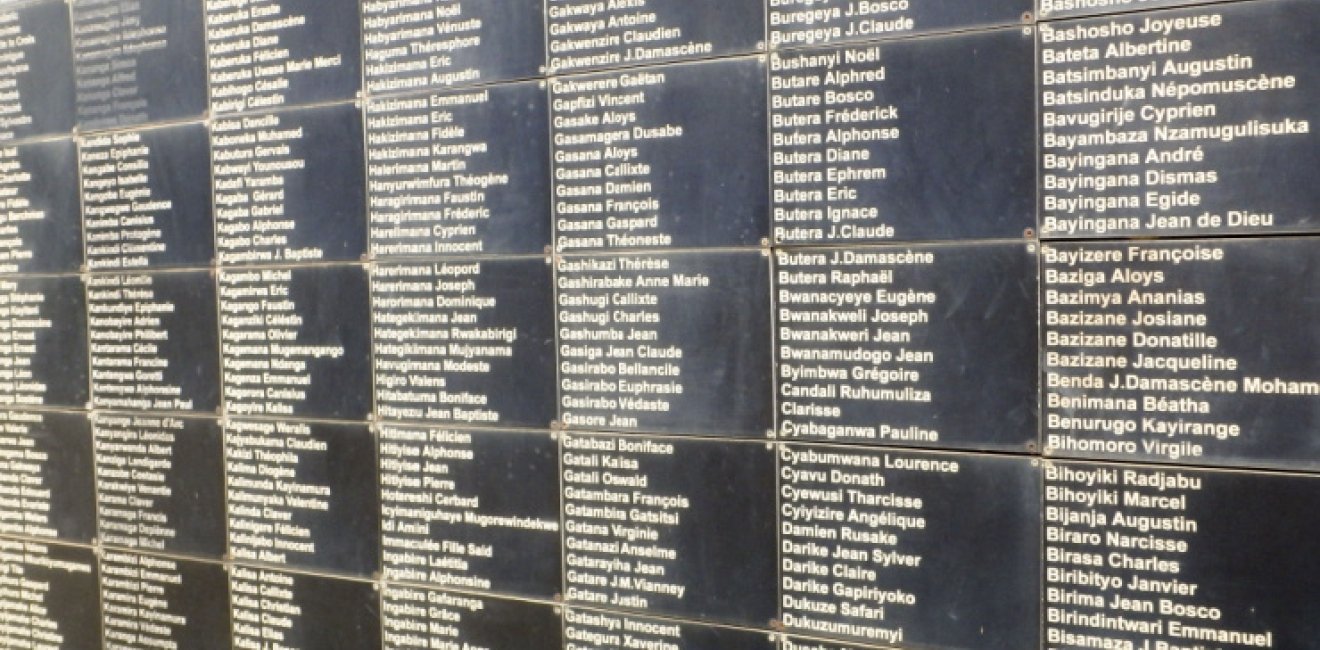
A blog of the Africa Program
Since 1995, Rwanda has steadfastly commemorated more than one million lives that were taken during the 1994 genocide against the Tutsi. The commemorative efforts have promoted a period of "collective memory" reflection as an approach that aims to heal the wounds of the past and contribute to reconciliation between genocide survivors and perpetrators’ families. While this approach has contributed to tremendous results so far, some of its experiences raise challenges that may affect peacebuilding processes among younger generations in the future. Policy and intervention responses tailored to benefit youth’s needs are more encouraged.
Performance of Collective Memory in Rwanda
The collective memory period take place each year between April 7 and July 4. genocide commemoration events and rituals are organized to perform this collective memory. Commemorative events include the burial of the remains of genocide victims that are still being found, laying flowers at the tombs of victims, visiting memorials, and holding grassroots meetings. Testimonies, mainly those of genocide survivors but also sometimes of genocide perpetrators, are shared at the commemoration sites and through radio, television, and documentaries. Different organizations visit genocide survivor families to comfort and provide material support. These events and rituals aim to remember the genocide victims by honoring their memory and that of their communities. They also provide occasions for survivors and perpetrators to meet, recognize the heroism of those who have saved people during the genocide, reclaim justice for victims, and promote the necessity for all Rwandans to live and work together for a united and reconciled nation. In those events, youth are reminded that they are the country’s strength and that they must prevent violence in the future.
Benefits for Young People
Promoting collective memory is important because it impacts collective identity. Collective memory in Rwanda contributes to a unified national Rwandan identity known as “Ndi Umunyarwanda”. In addition, by witnessing the genocide representations such as remains of dead bodies[1], pictures, displays of victims’ names in memorials for instance, and stories on how genocide was carried out, Rwandan youth better understand the evil that characterized the genocide. Young people born to survivors and those of perpetrators could learn from the collective memory violence of their communities through individual testimonies shared by primary memory bearers.. In this sense, the collective memory events increase knowledge about the genocide's history, especially for those who did not experience it directly. Moreover, witnessing horrifying acts and testimonies of genocide experiences narrated during the genocide commemoration events and or at memorial sites, has the potential to decrease youth’s doubts about the genocide acts, and restore meaning to lost lives, hence possibilities to undo the intent for genocide denial. Such experiences are likely to motivate youth to become active voices against hate speech, and human rights violations and increase their motivation to fight against genocide recurrence in the future.
Although, the collective memory offers an opportunity to have access on detailed information about the past, inconsistencies between testimonies shared during the collective memory events and stories youth hear from their family settings are also among challenges that youth face.
Challenges for Young People
Although genocide commemoration events in Rwanda have contributed to healing and reconciliation, some associated with this collective memory were also identified. Such events re-open the past wounds left by the genocide and increase trauma crises.[2] Though mental health and peacebuilding responses have significantly reduced such a mental health burden among the general population, trauma crises are currently affecting young people—including those born after the 1994 genocide. This trauma is transmitted to them intergenerationally and remains a challenge to reconciliation between families of survivors, their perpetrators, and youth born from both categories.
Although, the collective memory offers an opportunity to have access on detailed information about the past, inconsistencies between testimonies shared during the collective memory events and stories youth hear from their family settings are also among challenges that youth face. Some parents struggle to tell their children about their individual past experiences to avoid re-traumatization. Others opt to not disclose their past due to shame, guilt or fear of being discovered as a genocide perpetrator to avoid getting punished for their crimes or due to letting the past go and focus on the future by living peacefully with others. Due to these contradictions between scarcity of family experiences and abundancies of collective narratives, some youths do not know which story to consider as true. They are left confused, with unanswered questions. Not having coherent memories of the past are likely to cause some youth to distance themselves from their identity out of fear of being associated with their parents’ criminal or traumatic experiences.
Youth also face difficulties in making sense of such a horrific past, especially the reason why it happened. While youth attribute this inability to the lack of coherent stories of the past, adults associate this inability to understand the past among the youth with perceiving young people as "absentminded" or careless people toward the genocide history. Failure to make sense of parental past may cause youth to develop myths and assumptions that can sustain denial and nurture future violence.
Mitigating Challenges
Although the government of Rwanda has invested a lot in memory to rebuild a peaceful future, memory materiality somehow influences achieving this goal among youth. In order to mitigate this challenge therefore, one of the suggestions would be initiating intergenerational dialogues between parents, youth, and other community members[3] facilitated by mental health professionals to allow safe spaces for adults to freely discuss their genocide experiences and its consequences. Such disclosure could also produce testimonies on how people have succeeded in avoiding participation in genocide. this could help strengthen and inspire youth to resist violence in times of conflict by helping them focus on results through a reflection of the past’s outcomes based on the negative consequences that still affect older generation that went through the genocide. These dialogues will give youth opportunities to ask questions, express their aspirations for the future, and learn from the past and the adults who lived through these events, reduce prejudices and stigmas, diminish genocide ideology, and nurture civic education among the younger generations.
The government of Rwanda should also consider engaging youth in developing a youth policy strategy that would enable youth to process their grievances, and develop their critical thinking toward enabling them to make values and principles of Ndi umunyarwanda everyday values of Rwandan youth. These would empower them to go beyond family traumatic memories and ethnic differences and engage themselves in building sustainable peace for their future life.
Marie Grace Kagoyire is a Rwandan researcher interested in understanding how young people make sense of the genocide memories as they navigate them in everyday life. She is a Ph.D. candidate in the Department of Psychology at the University of Stellenbosch, South Africa. She is a Southern Voices Network for Peacebuilding Scholar for the Fall 2023 term in Washington, DC.
The opinions expressed on this blog are solely those of the authors. They do not reflect the views of the Wilson Center or those of Carnegie Corporation of New York. The Wilson Center’s Africa Program provides a safe space for various perspectives to be shared and discussed on critical issues of importance to both Africa and the United States.
[1] Some of them are former churches in which many people took refuge to, hoping that no one will find them in the house of God and kill them.
[2] Almost similar to Post-Traumatic Stress Disorder (PTSD)
[3] Including victim savors during the genocide
Author

Ph.D. candidate in the Faculty of Arts and Social Sciences, under the Chair for Historical Trauma and Transformation, Stellenbosch University

Africa Program
The Africa Program works to address the most critical issues facing Africa and US-Africa relations, build mutually beneficial US-Africa relations, and enhance knowledge and understanding about Africa in the United States. The Program achieves its mission through in-depth research and analyses, public discussion, working groups, and briefings that bring together policymakers, practitioners, and subject matter experts to analyze and offer practical options for tackling key challenges in Africa and in US-Africa relations. Read more

Explore More in Africa Up Close
Browse Africa Up Close
The Innovative Landscape of African Sovereign Wealth Funds



